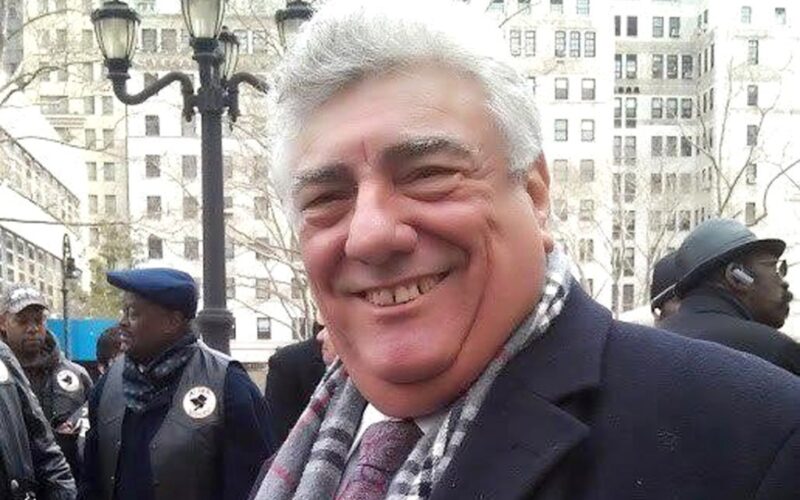At 1 p.m. tomorrow, the 10-member city Board of Elections must certify the complete ballot for the Nov. 4 general election. That includes all the candidates for state and local public office, from mayor on down, the single statewide ballot question and the four local City Charter amendments.
An illegal plot by Brooklyn Democratic Commissioner Frank Seddio, in cahoots with the City Council’s leadership, under Speaker Adrienne Adams, to refuse to place on the ballot three of the four Charter questions, must not happen. To fail to certify those three legitimate measures, dealing with land use and the powers of the Council and the mayor, would violate the role of the election commissioners and Gov. Hochul should remove any commissioner so voting to subvert a long-established legal and democratic process.
Seddio is a bum and shouldn’t be on the BOE and we warned of his unfitness less than a year ago when the Brooklyn Democratic machine put him forward for the board and Council wrongly confirmed him. We also warned against Seddio when he became the Brooklyn party boss in 2012 and in 2005, when he was slotted in a job as Brooklyn surrogate judge in a backroom deal. At least there our exposing of his ethical breaches as a judge led to an official conduct probe and his quick resignation from the bench.
What Seddio is proposing to do, based on his comments at last week’s public BOE meeting, is to agree with Speaker Adams, who says that the three Charter amendments should not appear on the ballot because they are confusing. The speaker, joined by the three other Council bigwigs, contend in an Aug. 28 letter that the amendments remove power from the Council on land use matters, but that the shift in authority is not clear in the wording of the ballot proposals.
Poppycock. The city’s Charter Revision Commission approved the language on July 21, as did the City Clerk on Aug. 4. Note that the clerk is appointed by the Council. If there was an issue, the Council should have filed a lawsuit in state court. They didn’t. The BOE’s role is just to take the approved language and put it on the ballot. That is a “merely ministerial” function.
The Council’s top lawyer, Jason Otaño, appeared before the BOE last Tuesday and claimed that the BOE is “not a passive actor” and should exclude the ballot measures when approving the ballot, which must be sent to the printers by Thursday in order to get out the ballots for military members stationed far from New York.
Otaño is wrong. The BOE’s role is like that of the U.S. vice president and the certification of the Electoral College vote for president. Regardless of who Mike Pence supported on Jan. 6, 2021, he had to announce that Joe Biden won the 2020 election. Just like Kamala Harris had to certify Donald Trump’s victory on Jan. 6, 2025 over herself.
If the BOE starts rejecting ballot measures because of their own beliefs, which has never been done, why stop there? Why not also reject candidates they don’t like?
In 1996, then-Council Speaker Peter Vallone put a charter question on the ballot that would change the two-term, eight-year limit to a three-term, 12-year cap. It was worded intentionally confusing to trick voters who liked term limits to actually loosen the caps and we called Vallone “Sneaky Pete.” But on the ballot it went, confusion and all. The voters correctly rejected it.
The BOE’s only duty is to certify the ballot, not judge it. All 10 members of the BOE are required by law to certify the complete ballot. They must follow the law.








